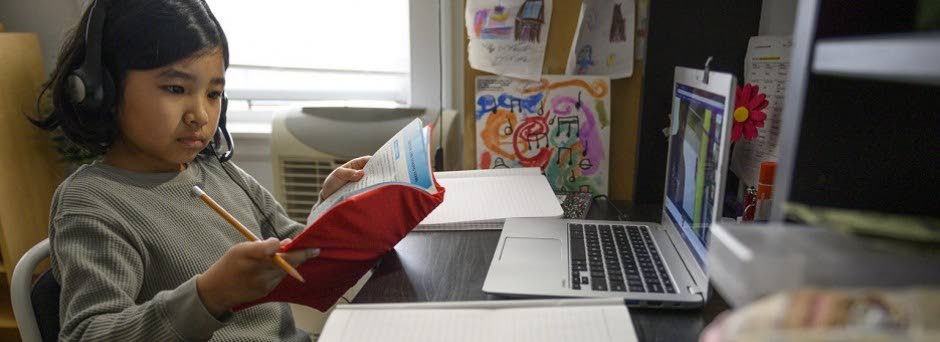World Mental Health Day marks the other pandemic

A PROGRESSIVE attitude towards mental health and wellness in TT has proliferated since the arrival of the covid19 pandemic, particularly at a governmental level and among youth and men, says clinical psychologist Asha Garib.
"Men are such key players in helping overcome the stigma attached to mental health and wellness," Garib told Newsday, "and it is empowering to other men who need help.
"When you see a male championing this cause, it's easier for a male who needs help to recognise, 'Okay, I can do this!'"
Mental health issues know no boundaries, affecting people in all income brackets and social status, everywhere around the world.
Insufficient or a complete lack of care for people suffering with mental health issues are on the rise globally. Although attitudes towards mental wellness are generally improving, the World Federation for Mental Health (WFMH) says provisions for dealing with mental health issues continue to pose a challenge, in low, middle and high-income countries.
The WFMH, an international non-governmental organisation founded in 1948, has designated October 10 World Mental Health Day, with the theme Make Mental Health and Well-Being for All a Global Priority, after a global vote.

It makes for a fitting discussion in the context of TT society's views on mental health, which are heading in the right direction, said Garib.
Ahead of World Mental Health Day, WFMH president Dr Nasser Loza noted that "in high-income countries, over 75 per cent of people with depression have reported that they do not receive adequate care and in low and middle-income countries over 75 per cent of people with mental health conditions have received no treatment at all."
The WFMH, along with global and regional health institutions, including the World Health Organization and the Pan American Health Organization, have issued reports over the past two years indicating that reports of mental health issues have increased substantially since soon after the start of the pandemic, and have been exacerbated by covid19's remaining part of daily life.

As well as covid19 and its direct and indirect effects on mental health, people worldwide face consequences of war, displacement, man-made and natural disasters, and climate change.
There is a multitude of factors, spurred by the pandemic, that have contributed to the effect on the mental health and wellness of the general population in TT, including the deaths of family members, friends and co-workers; loss of jobs and income; drastic inflation; an increase in serious crime; and extended isolation. To give just one example, at a parliamentary joint select committee hearing on Social Services and Public Administration in March, committee member Sen Avinash Singh said at least nine secondary schoolchildren diagnosed with clinical depression have died by suicide since 2019.
Last year UN Secretary-General Antonio Guterres said without decisive action, the impact of covid19 on mental health may last longer than the pandemic itself.
Historically, mental healthcare has been placed on the back burner, at least in comparison to physical healthcare, in TT and globally, as revealed by the WFMH.
"It's not often been seen as important because it's the 'invisible illness,'" said Garib. "If you can't see it, you don't believe it exists.
"Stigma is usually the biggest hurdle to overcome, because with stigma, people suffer in silence. It's really debilitating when people suffer in silence. Unfortunately, stigma is one of the largest realistic issues contributing to why people don't report or seek help."

The stigma is defined by categories such as age.
"You would see the older generation not believing much in mental illness. They would often say more or less things like, 'Just get up and go to work and move on with your life. Time will heal everything.'"
Conversely, she said, the younger generation is now, more than ever, advocating for mental health and wellness.
"In terms of gender, we all know, unfortunately, men aren't allowed to show any type of mental weakness; men aren't allowed to be emotionally and mentally vulnerable. It is more acceptable for women to seek help."
There are also specific stereotypes attached to certain mental health disorders and challenges according to gender, Garib said.
"There is almost a notion that depression and anxiety are female problems. It's feminised. Whereas things like conduct, behavioural problems, addiction, are masculinised" – all inaccurate notions, she said.
"Depression affects everyone, the same way addiction affects everyone."
As for the socio-economic stereotype, she said many believe depression is a "rich people problem," another common misconception.
Ethnicity also enters the equation.
"Let's say you might find a higher occurrence of a particular disorder in the Afro community than in the Indo community, or how the different races view mental health.
"When you break it down, you realise there is stigmatisation across all these (demographics) which makes it even more difficult for people to access help."
People with mental illness who do wish to seek help do wish for a sense of dignity, and choosing to use the correct terminology when speaking about mental illness is not to be underestimated.
"We say things like 'mad people' and 'crazy people.' 'He or she have to go St Ann's (Psychiatric Hospital).' These terms and narratives are really ridiculing and dehumanising. Just in the way we speak about people who have mental illness can promote the stigma."
Much like a physical illness, someone suffering with a mental illness is not defined by the illness, she said.
"Mary has depression. Mary is not depression. I have high blood pressure. I am not high blood pressure," for example: phrasing sensitive issues in such a way empowers the person suffering, she said.

Public mental healthcare in TT is on a positive trajectory, Garib noted, but it's still not perfect.
"In the public system – and this goes for other issues, not just mental health – there are always the issues of being understaffed and under-resourced, (and) poor infrastructure."
In comparison, private mental healthcare is well-resourced with psychologists and psychiatrists. But the cost of private care is out of reach of much, if not most, of the population, perhaps a reflection of a disparity of wealth.
A visit to a private psychiatrist vary. Many start at $500 per hour-long session.
Zoloft, a commonly prescribed brand of sertraline (a selective serotonin reuptake inhibitor and type of antidepressant medication), is normally taken daily and costs upwards of $800 for a month's supply. Cheaper generics, however, start at around $7 for ten capsules.
Fortunately, Garib believes, issues in the public system are gradually being addressed. For example, the number of health and wellness centres opening around the country is noticeably increasing, she said, "even in the rural areas, like the north coast and the south-east. So it's a good step forward.
"That shows there's greater advocacy and resources allocated for mental health and treating with mental illness."
The community-based mental health care and outpatient clinics, as with typical health centres, are managed by the various regional health authorities.
Ahead of World Mental Health Day, the federation also noted a finding that employers generally are unprepared for situations which may have significant effects on the mental health and wellness of the workforce.

But, it says, "The culture of our workplaces needs to support mental health and well-being of the workforce, so that employers are better prepared to support mental health and well-being in the working population.
"There is a need to establish global mental health and well-being targets that can bring together evidence that captures the social determinants of health, including promoting exercise, widening access to good nutrition and food, all of which will have a positive impact on mental health and well-being.
It also stressed, "Covid19 has shown that no nation was prepared for the associated mental health crisis and the effects of long covid. We need a new compact for mental health."
Garib agreed.
"We face barriers in the workplace because we don't want our co-workers to know our business. We might feel ashamed and afraid of ridicule. And, of course, this is where employers can do their part."
If an employee applies for help sessions within an employee assistance programme, it's up to the employer to allow the worker the necessary time off. It's in both parties' best interest for the employee to be given that time.
"The longer someone goes without getting help will increase the negative effect on their work performance. You may find they're coming to work late every day, or they're not coming at all. While at work, they're distracted, they're continuously making mistakes, etcetera, compared to the one who got time off (from) the employer to get the help."
Similarly, and perhaps more crucially, among schoolchildren, depression, anxiety and other mental health issues have risen sharply because they were indoors for two years during the pandemic, and their mental health is often neglected or overlooked, said Garib.
She suggested it was important for teachers and principals to give children an hour off to go to therapy sessions, in addition to more social and/or play time.
"We are still reeling from the effects of the pandemic, unemployment and economic issues, in the same way we are reeling from the mental health issues that arose, and because it's been two whole years, you can imagine the caseload, and these challenges aren't going to go away on their own."
Achieving a high rate of treatment is ultimately down to two major factors: access to treatment and willingness to accept treatment, both of which have seen TT come a long way. But because mental illnesses are "silent illnesses," Garib said efforts to achieve treatment for all who need it must be handled with the same priority as physical health.
Ministry of Health mental health and wellness centres and other resources are listed at: https://health.gov.tt/services/mental-health.


Comments
"World Mental Health Day marks the other pandemic"